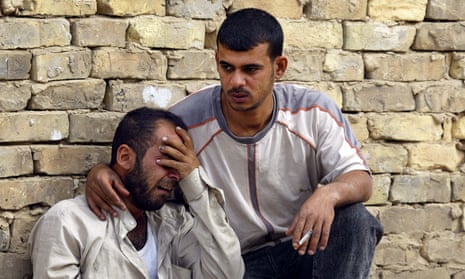Michael Bywater (When a manly pat on the back won’t do, 1 August) correctly points to the salience of culture in shaping our responses to grief, but when he writes “We have grown to distrust rationality; feeling is the new thinking”, whom is he referring to? For some, grief has to be stowed away because, in rational terms, they cannot allow it to dominate their lives when earning a living and supporting children have priority. They are not in a position to cogitate on “the rewriting of what it means to be human”.
Those who are at the forefront of this discourse, though, are not necessarily harbingers of change when it comes to responses to grief. Some years ago I was working in a Russell Group university and the response I received, on the death of my wife, from a female professor of sociology, was: “Oh, I wouldn’t like that.” Clearly indicating, as Bywater puts it, that the new message is “We’re all in it together”. Really?
David Graham
Hampshire
When my husband died many years ago, friends and relations fell into two groups: those who said the right thing and those who were crass. Our children and I puzzled over this and then realised that those who got it right had each suffered a significant loss roughly between the ages of 15 and 25, except one whose loss was unknown to us. Years later this friend told me that at the age of 17 she had been obliged to give up a child for adoption so she too fitted the hypothesis. It seems that we need to feel a loss at a period of development and learn to process it in order to be able to empathise with others’ grief.
Janie Penn-Barwell
Bishopstoke, Hampshire
Writing about male emotional inexpressiveness, and the insensitivity to the suffering of others that it leads to, Michael Bywater says it is “not men but culture”. But it is in reality masculine culture, which has its roots in the stiff upper lip required of men governing an empire of racial inferiors. The empire is no more, but British males continue to psychologically construct themselves in contrast to women – tough, aggressive, reticent and invulnerable. And their ability to partake in discussions relating to fundamental existential issues such as love, sex or death is often subverted by defensive humour.
A start to change this could begin in schools, incorporating feminist insights relating to the nature of the social construction of manhood into the curriculum.
Sydney Peiris
Wolverhampton, West Midlands
